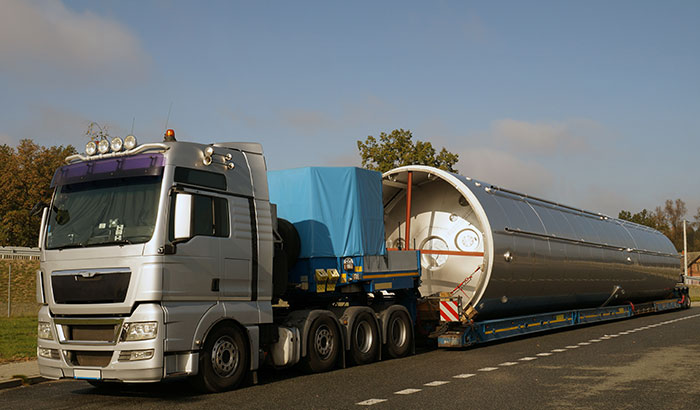How Decker is Growing Even During Market Instability
Fleet Manager
May 18, 2020

It’s about everything
For drivers, the approach at Decker is not about any one thing– it’s about everything. When it comes to enhancing compliance, safety and comfort for drivers, Decker breaks things down into three areas. There are “must-have” technologies like ELDs, for example, and “should have” solutions like communications platforms and safety items.
“Where we can make a difference is in the value of the ‘nice to have’ things,” Decker says. “The vehicles, technologies, systems and programs that we can provide for driver comfort and convenience are perhaps the most important to consider, and they’re what pay dividends to the fleet.”
A number of years ago, Decker relates, the carrier was faced with rising driver turnover, which it was able to begin addressing with new late-model tractors. Today, after shortening its trade cycle from 500,000 miles to about 340,000 miles over about 36 months, the fleet’s average tractor is just 1.9 years old.
“Safety is imperative to our success and the future of our company,” Decker says. “Along with technologies in vehicles, we perform safety assessments to be able to continually improve procedures and provide the training, knowledge and tools needed to prevent accidents.
Decker Truck Line drivers are offered competitive pay and bonuses, benefits including a wide-ranging insurance package and retirement savings options. Its driver-friendly environment includes things like Driver Centers at company terminals that provide a comfortable place to rest during off-duty periods.
Improving Quality of Life
“We set our sights on that goal by focusing on things that would make drivers feel appreciated and improve their quality of life on the road,” Decker relates. “If you’re a traveling salesperson who spends every night in a different location you expect each hotel room to have certain amenities. It really shouldn’t be any different for truck drivers, who work and stay in the same place all the time.”
Decker’s approach was to equip its tractors with a variety of options and the latest technologies to provide uninterrupted communication, and to make life on the road as comfortable and as much like home as possible for drivers. As a result, the vehicles were fitted with auxiliary power units, inverters and bunk heaters, as well as Bluetooth systems, refrigerators and microwave ovens.
At the same time, Decker Truck Line embarked on a program to install EpicVue in-cab satellite TV systems in every one of its over-the-road tractors. So far, the carrier’s maintenance department has completed about 70% of the installations and the remainder should be done by early summer.
“In-cab TV is just one of the arrows in our quiver,” Decker says. “It’s something our drivers have come to appreciate, though, especially when they’re faced with long detention time while waiting to be loaded or unloaded, and during the longer mandatory rest periods required under the latest Hours of Service rules.
“While there are always financial factors and other entertainment service options to consider, a reason we also chose EpicVue was because they have a very forward-looking approach for staying ahead of the entertainment technology curve,” Decker adds. “In the future, the in-cab satellite TV system may be a platform for new types of services that will benefit our remote workforce.”
Greatly Easing Stress
Being a professional truck driver is not easy, Decker notes, but having the right “nice to have” systems and solutions can greatly ease the stress. “It’s hard to say how much any one thing improves life on the road for drivers,” he says, “but we do know that an investment in a holistic approach benefits them and our business.”
Decker Truck Line, an 89-year old, family-owned and operated trucking company, credits its loyal workforce for its commitment to exceeding customer expectations. “Our employees are our most valuable asset because by working as a team they consistently accomplish our goal of providing the highest quality service in meeting our customer’s expectations,” Decker says.
“We believe that efficiency and financial strength allow us to achieve our corporate goals and create opportunities in every economic and market condition,” Decker adds. “We are highly cost-aware and work continuously to carefully manage financial risk systematically and responsibly.”
Full Article: https://www.fleetequipmentmag.com/fleet-profile-decker-truck-line/


